Koji Food: Asari Joei’s Journey into Fermentation
Jan 24,2019
Koji Food: Asari Joei’s Journey into Fermentation
Jan 24,2019
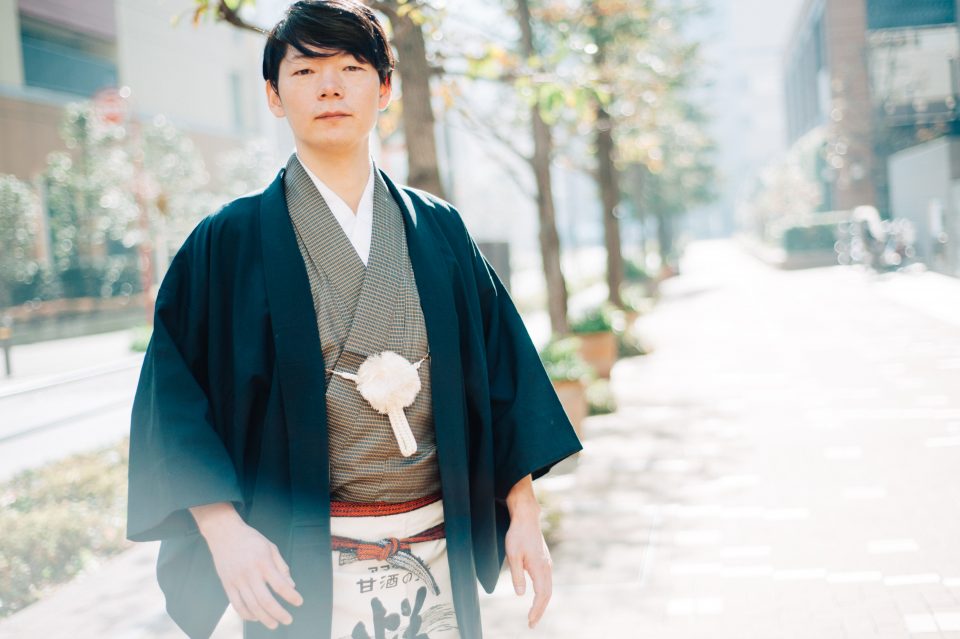

Asari Joei is the scion of Kojiya Honten, a historic shop in Saiki, Oita Prefecture founded over three centuries ago. An expert on koji foods, he now devotes himself to giving cooking classes and spreading knowledge of koji and fermented seasonings in Japan and beyond. And he still calls Kojiya Honten home. But there’s an unusual story behind how he ended up back at the family business.
After graduating in nursing from the University of Miyazaki Faculty of Medicine, Joei worked for four years at a hospital in Tokyo, during which time he traveled to over twenty countries across the globe. Then he joined the Japan Overseas Cooperation Volunteers and was stationed in Paraguay. There he worked in the community health field as a nurse and public health specialist. Having pursued such a career, how did he come full circle to where he started from, the koji business? We asked him, and he told us a fascinating story.
Joei is the eldest son of a traditional koji merchant family, but his career history includes a stint in Paraguay as a nurse, which is a long way from what he now does. What led him to start disseminating knowledge of koji?
“I first learned how koji is made when living in Paraguay. I was stationed in an area with an ethnic Japanese community, and I would give the seniors there health classes in my capacity as a nurse.
“One day an ethnic Japanese who had seen my mother* on the NHK program Today’s Cooking asked me, ‘There was a woman on TV with an unusual surname like yours, Asari. Do you know her?’ ‘That’s my mother!” I replied [laughs]. That’s what prompted me to start holding cooking classes on using koji and giving talks as a nurse on the benefits and nutritional value of koji.”
*Asari Joei’s mother is Asari Myoho, the current president and ninth head of Kojiya Honten. Nicknamed the Koji Shop Woman, Myoho has long devoted herself to disseminating the cultural heritage of koji in Japan and worldwide.
▶Interview with Asari Myoho (in Japanese)
Shio Koji, Salted Koji & Japanese Food with a Koji-ya
Surprisingly, miso and soy sauce were common in the Japanese community in Paraguay. Some people even made koji.
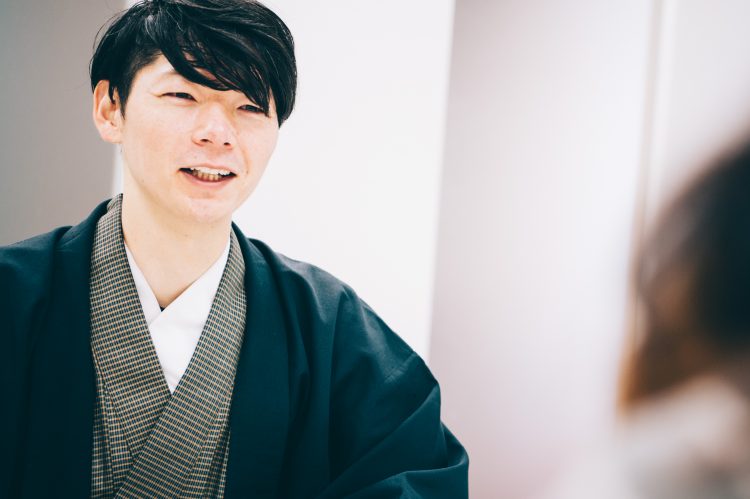
“They had their own way of making koji. They didn’t have a dedicated room for producing it, but they would mock up a substitute using Styrofoam and carefully control the temperature. I’d never learned the proper way to make koji at home, so I observed how they did it and started making koji in my own way using whatever equipment and materials I could find. It was a real education. It taught me that there was a way to make koji even where the environment and facilities available were totally unlike those in Japan. After I got back to Japan, I had to learn the proper way to go about it, this time at my family home.”
Despite being born into a family of koji makers, Joei first learned how to make koji from the Japanese community in Paraguay. Was he previously uninterested in the family trade?
“To be honest, even though I was the oldest son, I had no definite intention of taking over the family business. I thought I’d worry about it when the time came. Back then my grandparents were hale and hearty and working hard, so I decided to see the world and do everything I wanted to while I still had the freedom.
“But after backpacking and working as a Japan Overseas Cooperation Volunteer in twenty countries, I stumbled across koji again on the other side of the globe in Paraguay. I should have known, I thought [laughs]. I figured it must be fate.”
Joei’s unexpected encounter with koji in Paraguay proved a turning point. On returning to Japan, he followed in his mother Myoho’s footsteps and dedicated himself to propagating and passing on of the cultural heritage of koji. To gain a better knowledge food, he enrolled in the graduate program at the University of Gastronomic Sciences in Italy. He also decided to attend an academy in Tokyo specializing in Japanese cuisine and sushi.
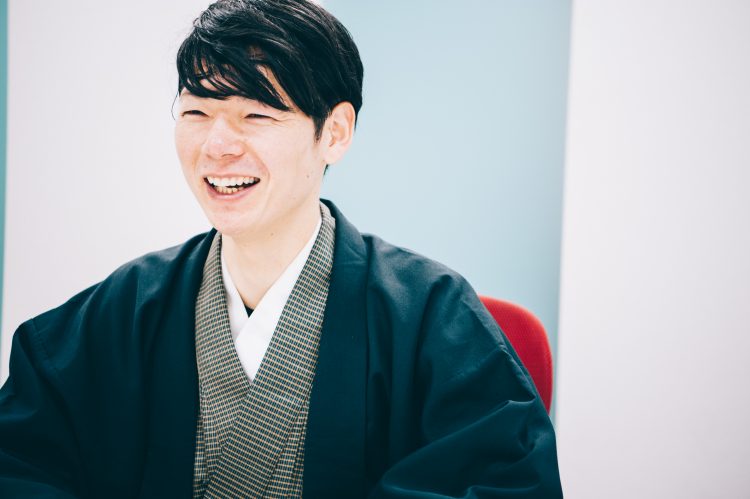
“I studied in Italy to obtain my master’s in food culture, but I didn’t just gain course credits. I learned recipes and unusual meal preparation techniques and cooking skills from many different people. It was a wonderful year. The University of Gastronomic Sciences was established by the founder of the Slow Food Association in Italy, and chefs and others with an interest in food go there to study from around the world.
“There are five study tours a year. We visited slow food communities and small farms in Italy and other parts of Europe, as well as restaurants that keep the old ways alive. I learned a lot. I also engaged in frequent cultural exchanges with my classmates and other enrollees from different countries. I would prepare Japanese food, and in return my friends would make something from their own country. Or I would teach them about koji, and they would teach me how to bake bread.”
These cross-cultural exchanges with classmates and friends weren’t the only thing that left a lasting mark on Joei. So too did the courses he took on food culture.
“The first class I took after enrolling was called ‘The Columbian Exchange,’ and it made a real impression on me. This examined what changes occurred in diets, animal and plant populations, infectious diseases, cultures, and lifestyles around the time that Columbus discovered the New World. I found it fascinating, and it gave me a lot of new insights. For example, the tomato, which in our minds is strongly associated with Italy and Spain, is in fact native to the highlands of the Andes in South America.”
To be sure, Italian food without tomatoes would be unthinkable. But finding a workaround when something isn’t available is one of the trademarks of Joei’s cuisine.
“Wouldn’t it be a pity if you couldn’t make something just because you lacked a particular ingredient? That’s why, when devising a recipe, I try my best to avoid ingredients that aren’t easily available.
“If, for example, you’re trying to make a foreign recipe in Japan, what can you do if there’s an ingredient you can’t get here? Maybe you could spend a lot of money and buy it online. But what I do first is ask myself what that particular food or seasoning is meant to do in the recipe, then consider whether something can be substituted for it.
“Quite a few things can be used as substitutes, and it’s surprisingly fun to try to think of them. If the idea is to add flavor and body to a dish, salted koji can often serve as a stand-in. Conversely, there are surprisingly few dishes that can’t be made for lack of a particular ingredient.”
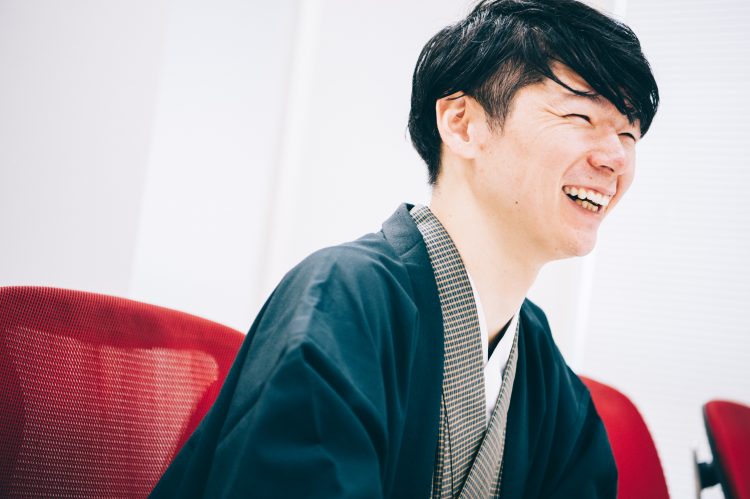
Have you ever been on a trip somewhere and eaten something so good that you just can’t get the taste out of your mind? You want to try making it at home, but you give up because a particular local ingredient isn’t available where you live. Many people must have had that experience.
Well, when that happens, do what Joei does. Ask yourself the characteristics of the ingredients used in the dish and what purpose they serve. Then replace the ingredient in question with an easily available alternative. Doing so will greatly expand your repertoire of dishes and culinary horizons. If you can find a Japanese fermented food to use, not only will it make the dish taste great, it will also bring the added benefit of being healthy.
“My slogan is ‘With fermentation, the world will be as one.’ I plan to continue doing my small part to help people eat healthier, more enjoyable, tastier meals.”
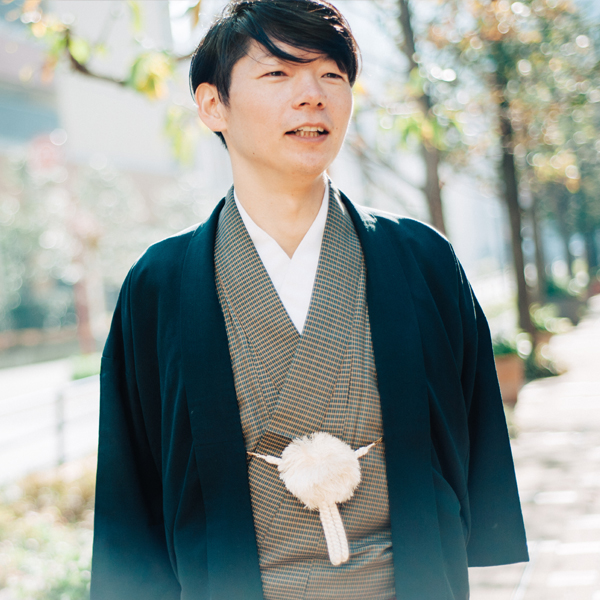
Koji Food Expert
Koji Food Expert
Asari Joei, the eldest son of Asari Myoho, the ninth head of Kojiya Honten, was born in Saiki, Oita Prefecture, in 1982. After graduating in nursing from the University of Miyazaki Faculty of Medicine, he worked as a nurse in Tokyo. During that time he visited over twenty countries in Southeast Asia and elsewhere in fulfillment of his childhood dream of traveling the world. He then signed up for the Japan Overseas Cooperation Volunteers and from 2011 spent two years in Paraguay working as a nurse. There he encountered the fermented food traditions of the ethnic Japanese community. That experience inspired him, on his return to Japan, to start proselytizing the wonders of koji all over the world, and he now made Kojiya Honten his base. In November 2016, he completed a master’s degree in food culture and communication at the University of Gastronomic Sciences in Italy. He currently devotes himself to bringing knowledge of koji to people in Tokyo and abroad.